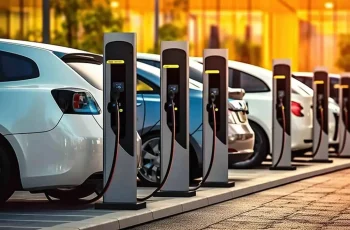The recent news of Tesla entering the Indian market has invigorated the prospects for the Indian EV industry, signaling strong investor confidence. With a stable market, investment opportunities, and supportive government policies, the EV sector is poised to become a haven for investors. The Indian EV market, currently valued at $5.22 billion, is projected to grow at a CAGR of 28.52%, reaching $18.319 billion by 2029, with expectations of generating approximately five crore jobs by 2030.

India has recently surpassed Japan to become the third-largest automobile market, and a shift towards greener options is evident as the EV penetration rate rose from 6.8% to nearly 8% last year. In 2024, EV sales increased by 24%, reflecting a surge in consumer demand.
To promote EV adoption, the Indian government has implemented several policies, including the Faster Adoption and Manufacturing of (Hybrid &) Electric Vehicles (FAME) scheme, which supports electric vehicle production and infrastructure development. The Production Linked Incentive (PLI) scheme aims to enhance manufacturing capabilities for advanced automotive technologies, while the PM E-Drive Scheme, launched in October 2024, focuses on making EVs more affordable and expanding the charging network across the country.
Additionally, the Clean Tech manufacturing support program seeks to reduce customs duties on essential capital goods for EV battery production, fostering local manufacturing and job creation. This initiative aligns with India’s National Manufacturing Mission and mirrors successful global programs like the U.S. Inflation Reduction Act.
If India maintains its policy momentum and invests in skills and R&D, the clean tech sector could experience a manufacturing renaissance, leading to significant job creation and enhanced competitiveness in the global market, positioning India as a key player in the clean energy supply chain.




